Find Out Why a Heat Pump May Be Right for You
With Florida’s milder winters, you may be wondering if a heat pump is the right choice for your home. In relatively moderate climates, heat pumps provide both cooling and warming capabilities, and can be a cost-efficient option for your family.
According to the U.S. Department of Energy, an air-source pump can deliver one-and-a-half to three times more heat energy to a home than the electrical energy it consumes, if it is installed properly by a reputable, highly trained service provider.
A heat pump can be a great option for keeping your Florida home warm during the winter. It’s important to choose the best system to keep your family comfortable and to work with a professional to ensure the system will work at its highest level.
How Heat Pumps Work
Using a compressor, coils and aluminum fins, heat pumps transfer heat, instead of generating it. They provide warmth using a liquid refrigerant to extract heat from the outside air, turning it into a gas. Indoor coils release heat from the refrigerant as it condenses back into a liquid.
Benefits of Heat Pumps
There are several reasons a heat pump could be the right option for your home, including:
- Improved air quality: Circulated air is purified, removing dust, smoke and mold.
- Dual usage: Not only will a heat pump keep your home warm, but it can be used in summer as well for cooling.
- Eco-friendly: Since heat pumps don’t burn at the source, there are no carbon emissions.
- Convenience: You can warm up your home fast, with just the touch of a button.
Long-Term Satisfaction with Your Heat Pump
First, be sure you’re working with a qualified, experienced HVAC professional when choosing to install a heat pump, because proper installation can reduce the likelihood of problems later. For example, fans and compressors emit a certain amount of noise, so you don’t want to install them right under a window. Mounting the unit on a noise-absorbing base can also keep things quiet. You also want to make sure your unit is protected from the wind to avoid defrosting problems with the coils. And if your area is prone to flooding, the outside unit may need to be installed on a raised platform.
Heat pumps are a rapidly growing source of energy, especially in Florida. According to the U.S. Energy Information Administration, more than 9 million households in the Southeast are using heat pumps, so it is important to work with a dedicated service provider who makes the process of buying and installing a system easy.
Mistakes to Avoid When Buying a New AC Unit
If your AC unit has died, now may be the best time to replace it. Before you start shopping for a new unit or buy the first air conditioner you find on sale, consider these common mistakes to avoid when buying a new AC unit.
1. Purchasing the Cheapest Unit
Buying an inexpensive air conditioner may not be in your best interests. When comparing prices, look for a reputable brand that is energy efficient and reliable. Even if the AC unit costs more initially, in the long run, it may offer you more value in the long run.
If you want to save money on your utility bills, the efficiency rating is crucial. According to Cox Heating & Air Conditioning, the most important aspect of choosing an HVAC system for your home is the Seasonal Energy Efficiency Rating or SEER.
In 2015, the U.S. Department of Energy created new regulations in which the SEER must meet varying requirements based on geographic climates. According to these guidelines, the SEER must be no less than 14 in the Southeast.1
2. Getting Only One Estimate
It’s important to get several estimates before choosing a new air conditioning unit. Always ask for written estimates. When requesting an estimate, be sure that a warranty is included in the product and services provided are clearly stated.
3. Declining the Maintenance Plan
Regularly scheduled maintenance is key when it comes to protecting your new air conditioner.
While you may be tempted to waive a maintenance plan, the professionals at Cox Heating & Air Conditioning caution it will cost you more to maintain your AC unit when expensive repair bills or labor charges add up.
Preventative maintenance may include replacement of parts that wear out periodically. Many maintenance plans also cover coolant, which will need to be refreshed, especially in hot climates. Investing in a preventative maintenance plan will help ensure the long-term efficiency of your air conditioner.
4. Buying the Wrong Size Unit
Before you purchase an air conditioning unit, consider the size of the space you are trying to cool. The efficiency and cooling capacity of each AC unit will vary depending on the unit’s size. If your AC unit is too large or too small for the space you are trying to cool, the unit’s efficiency will be compromised. And that initial mistake could lead to high energy bills, poor cooling and costly repairs for years to come. An experienced HVAC professional will be able to accurately calculate the size unit your space requires.
5. Hiring an Unqualified Contractor
Purchasing an AC unit is not just about the brand of the unit itself. You’re also banking on the contractor who installs it. Hiring an unqualified or inexperienced contractor can mean expensive repairs and problems down the road. Instead, search for experienced professionals. Ask your friends and family members for referrals, and be sure to read online reviews to make sure you’re selecting a professional with a record of excellent customer service.
Buying an AC unit doesn’t have to be a stressful experience. Spend time doing some research and your hard work will pay off when it comes to keeping your home cool and comfortable.
Indoor Air Filtration Alleviates Seasonal Allergy Symptoms
If you’re a seasonal allergy sufferer, you know the daily struggle to prevent the myriad symptoms allergies can cause. They’re a problem for many Americans — pollen allergy is one of the most common chronic diseases in the United States.
Seasonal culprits like pollen begin showing up as early as March in the southern United States. If you’re dreading the arrival of spring, indoor air filtration and HVAC installation can play an important role in preventing or mitigating seasonal allergy symptoms.
Indoor Filtration Options
There are two primary ways to filter the air in your home. Whole-house filters clean the air using filters built into the return-air ductwork of existing HVAC systems. They’re easy to maintain, purify the air in your entire house and accept a wide variety of filter materials. Portable air filters use small fans to push air through a filter and are designed to clean one room. They’re not as efficient as whole-house options but work to target specific spaces when HVAC installation isn’t an option.
Types of Filters
Pollen and dust cause most seasonal allergies. Pollen particles can range from 10 to 100 microns in size, while dust ranges from 0.5 to 5 microns. Not all filters can capture particles of these sizes.
HVAC systems commonly use mechanical air filters made of synthetic fibers that trap particles. The filters’ effectiveness is measured as a Minimum Efficiency Reporting Value, or MERV rating. The lower the MERV, the poorer the filter quality. For seasonal allergies, these disposable filters are affordable and efficient:
- Pleated: MERV rating of 10–13 or 14–16 for high efficiency. Electrostatically charged pleated filters attract allergens like pollen.
- HEPA: removes up to 99.97 percent of all particles; MERV rating of 17–20.
Portable air cleaners’ effectiveness is measured by clean air delivery rate, or CADR. Many portable air cleaners don’t have high enough CADR values to remove large pollen particles. Look for these filters if you use a portable device:
- HEPA: removes up to 99.97 percent of air pollutants as small as 0.3 microns.
- Electrostatic charged: uses tightly woven electrostatically charged fibers; effective at trapping small particles like dust, mildew and pollen.
Silver ion and activated carbon filters are designed to remove harmful bacteria, not irritants like pollen.
The Best Option
If you’re looking for indoor air filtration for seasonal allergies, a whole-house filtration system with a high-efficiency furnace filter is the best choice. Adding a portable air filter while you sleep may also alleviate symptoms. The most important thing to remember is to change your HVAC system’s filter every 6–12 months.
Proper HVAC installation and maintenance are essential for effective indoor air filtration. HVAC professionals at Cox Heating and Air Conditioning can help you choose the right filter for your HVAC system and educate you on regular filter changes. Don’t suffer this spring; call the air-filtration experts at Cox Heating and Air Conditioning to take control of your indoor air quality today.
Frozen Air Conditioning: What Now?
Has your air conditioner stopped blowing or had its air flow weakened even though you hear the motor running full speed? Do you see ice around or in the outside unit? If so, take these steps.
Improve Your Air Quality with These Minor Changes
It should go without saying that proper and regular HVAC maintenance is an excellent way to make sure you and your family enjoy quality indoor air. However, there are other easy and practical steps you can take to further enhance the quality of the air that you breath in your home. Below are a few ways we would like to highlight.
Air Filters: How Efficient Does Yours Need to Be?
One of the most important components of forced air heating and cooling systems are the air filters. They make an impact on energy bills, system longevity and indoor air quality. Although it’s one of the most important elements of your HVAC system, it’s also one of the easiest to overlook.
Filters carry efficiency ratings known as minimum efficiency reporting values, or MERV, which tell consumers the smallest particle the filter can trap. The scale runs from 1 to 16 for residential filtration, and efficiency rises as the numbers get higher. Most HVAC systems can use a filter with a MERV rating of 8 or less, and anything higher has the potential to slow the airflow through the air handler, which harms your system and increases energy bills.
The least expensive air filters are fiberglass and have MERV ratings no higher than 4. The size of the particles an air filter can remove is measured in microns, and a filter with a MERV of 4 will trap particles no smaller than 10 microns, including dust, pollen, lint and larger mold spores. An air filter with a MERV up to 8 will trap airborne particulates that are 3 microns and larger, including mold and other spores, hair, animal dander and very fine dust.
Before you upgrade your filters to a higher MERV rating, check the owner’s manual to learn the maximum density your air handler can handle, or check with an HVAC professional who can tell you.
No matter what filter you choose, be sure to check air filters monthly. Higher efficiency filters trap more particles, so they can accumulate dirt quicker. One of the ironies of filtration is that the fiberglass filters actually trap more particles when they’re dirty, but combined with the slower airflow and the fact that more dust enters your system, it’s not a good way idea to use them when they’re dirty.
To learn more about air filters for your HVAC system in the Tampa and St. Petersburg area, contact Cox Air Conditioning & Heating today.
Is Your High Efficiency Heat Pump Underperforming? It Could Be a Lack of Home Insulation
If you’ve installed a high efficiency heat pump but haven’t seen your energy bills come down as far as you’d expect, it might not be your heat pump that’s the problem. While a great heat pump can be incredibly efficient at using energy to provide heating for your home, it cannot make up for inefficiencies elsewhere. If you’re losing 50 percent of the heat in your home through gaps in your walls and ceiling, your furnace will need to be working twice as hard to keep your home heated, even with an AFUE rating of 90 to 95.
For most homeowners, the real inefficiency in their homes is the loss of heat escaping via air leaks and through insufficient insulation. While this can never be entirely stopped, it can be significantly reduced by using insulation effectively.
Typically as much as 40 percent of energy used is lost through air leakage in an average home, most of which can be avoided. The upfront cost of getting this work done will be repay itself many times over by reducing your future energy bills.
The first step to reducing your home’s inefficiencies is to engage the services of a qualified HVAC professional. An expert technician can install additional insulation in the attic and walls where needed and seal air leaks around the home to prevent escaping conditioned air. While some of these can be done as a DIY job, an qualified expert knows where to look for air leaks and will also know which insulation to use for the job, as well as how to use it.
For more information about using your high efficiency heat pump properly and to ensure sufficient insulation in your home, contact the pros at Cox Air Conditioning & Heating. We’re proud to serve homeowners in and around the Tampa area.
How to Air Seal a House
Air sealing your home is a cost effective way of improving energy efficiency and comfort because it decreases the amount of air that enters or escapes out of your home. According to Energy Star, homeowners can save up to 20 percent on heating and cooling costs by air sealing their homes.
Before you air seal your house
Prior to air sealing, you should:
- Inspect for air leaks – You probably know where the obvious air leaks are, but to properly air seal your home, you’ll also need to locate the least obvious air leaks. Hiring an HVAC professional to conduct an energy assessment of your home can provide you with a complete inspection of your home for air leaks.
- Determine your ventilation needs for indoor air quality – Proper ventilation is important for an energy efficient home. Good ventilation helps control moisture to prevent mold growth and structural damage. A qualified HVAC professional can determine the level of ventilation that will improve your home’s indoor air quality.
How to air seal a house
There are three components to consider:
- Sealing leaks – Caulking, weatherstripping and spray foam are the most common approaches to sealing obvious air leaks such as around doors and windows. These methods may also be applied to hidden leaks in crawl spaces, attics and the basement.
- Add insulation – Properly insulating your home is important when air sealing your home. The recommended level of insulation in your attic is about 12 to 15 inches.
- Seal ducts – About 20 percent of the air moving through a home via its ductwork is lost because of leaks or improper sealing. An HVAC professional can repair your ducts with a duct sealant. Properly sealed ducts can keep your energy bills low and your home more comfortable.
To learn more about how to air seal your home, contact Cox Air Conditioning & Heating. For more than 50 years, we’ve proudly served the residents of the Clearwater, Palm Harbor, St. Petersburg, Tampa, Trinity and Westchase areas.
Cleaner A/C Coils Mean Better System Performance
Clean air conditioner components are essential for the optimum efficiency of your system, and your A/C coils are no exception. The coils in your air conditioner are responsible for extracting the heat in your home’s air and sending it outside. The evaporator coil in your indoor unit and the condenser coil in your outdoor unit need annual cleaning to ensure that your system operates efficiently to keep your Tampa home comfortable all season long and lower your utility bills.
A qualified HVAC professional can clean your A/C coils as part of your annual preventive maintenance. Depending on how dirty your coils are, your technician will employ one of three methods for cleaning them:
- Dirty coils are generally cleaned with low-pressure air from a compressor, which blows off the dust buildup.
- Dirtier coils are scrubbed with a solution of water and mild detergent, then rinsed thoroughly.
- Heavily-soiled A/C coils are cleaned with a foaming, no-rinse chemical coil cleaner, which is applied and allowed to sit for a few minutes. The foam liquifies and drips into the condensate pan, where it’s sent down the drain. When possible, opt for biodegradable coil cleaners that are safer and don’t pollute the water supply.
Once the A/C coils are clean, the technician will turn his or her attention to the condensate pan beneath the evaporator coil, which catches the condensation that drips from the coil.
Because of the damp conditions of the condensate pan, mold and bacteria can proliferate and prevent optimum drainage of the pan, resulting in water backing up and triggering a shutdown of your system. Additionally, these contaminants decrease the indoor air quality of your home. A biocide is often applied to the condensate pan to kill biological contaminants and prevent further growth. The PVC drain line attached to the pan will be flushed to remove any buildup that may cause clogs.
For more expert advice about cleaning your A/C coils or to schedule preventive maintenance of your entire system with one of our qualified technicians, please feel free to contact us at Cox Air Conditioning & Heating. We’ve proudly served the Tampa area since 1958.
Allergy Sufferers: Prepare for Spring Now
Spring is known as the season of new birth. The spring months bring with them warmer days, pleasant breezes and blooming flowers, trees and grasses. Unfortunately, these beautiful blooms can cause serious distress to individuals who suffer from allergy problems. If you or someone in your family suffers from seasonal allergies, preparing for spring now will help you make the most of these warmer months in beautiful St. Petersburg, FL. Remember that seasonal pollen can also aggravate individuals who suffer from asthma, COPD and other respiratory diseases. Taking steps to prevent these problems now will ensure that everyone in your family can truly enjoy spring.
Are Allergy Problems Following You Indoors?
Many allergy sufferers hide out in their homes when flowers, trees and grasses release pollen into the air. Retreating into your home may provide some relief, but it’s important to pay attention to whether or not your symptoms also follow you indoors. Remember that pollens and pollutants can move into your home through windows, doors, vents and leaks in your roof, walls and floorboards.
How is Your Indoor Air Quality?
If retreating into your home provides no relief from seasonal allergies, you should consider have air quality testing conducted. A professional HVAC technician can assess the indoor air quality (IAQ) in your home to ensure that everyone in your family is breathing clean, healthy air. During an IAQ test, the technician will measure the levels of all of the following:
- Dust, pollen and dander.
- Mold and mildew.
- Particle pollutants such as car exhaust, industrial fumes and smog.
- Chemicals present in carpets, draperies and other household products.
- Carbon monoxide.
After air quality testing is finished, your technician will provide you with in-depth information about the pollutants present in your home. If possible, your technician will also pinpoint possible causes of poor IAQ. It may be necessary to examine heating and cooling ducts to determine if dust, dander, pollen, mold or mildew have collected in these spaces.
Clearing The Air with An Air Purification System
Finding out that your home suffers from poor IAQ can be upsetting. However, you can rest assured that you do have options when it comes to cleansing the air in your home. Using an air purification system is a great way to filter pollutants while ensuring that clean, refreshing air can circulate throughout your home. Air purifiers can be used as stand-alone devices in a single room or can be connected to your home’s central heating and cooling system.
Working with qualified HVAC professionals is the best way to ensure that the air purifier you choose for your home will truly meet your needs. At Cox Air Conditioning & Heating, we specialize in serving the needs of residential and commercial customers throughout the St. Petersburg area. We will be happy to conduct IAQ testing in your home and can help you find an air purifier that will allow everyone in your family to breathe easy. Give us a call today.



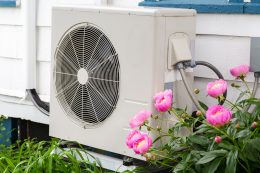
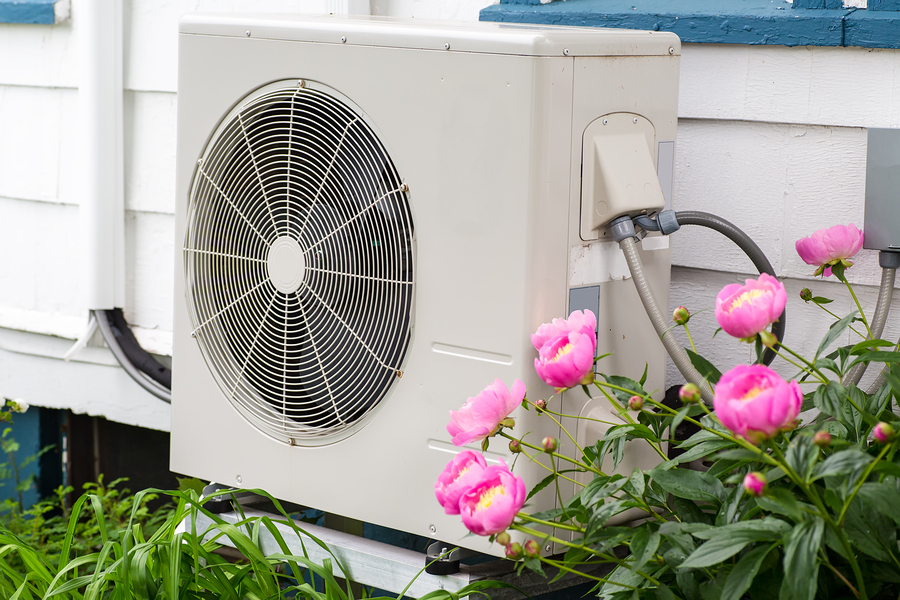
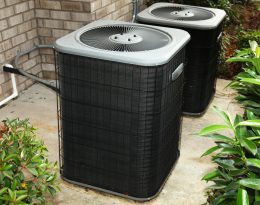
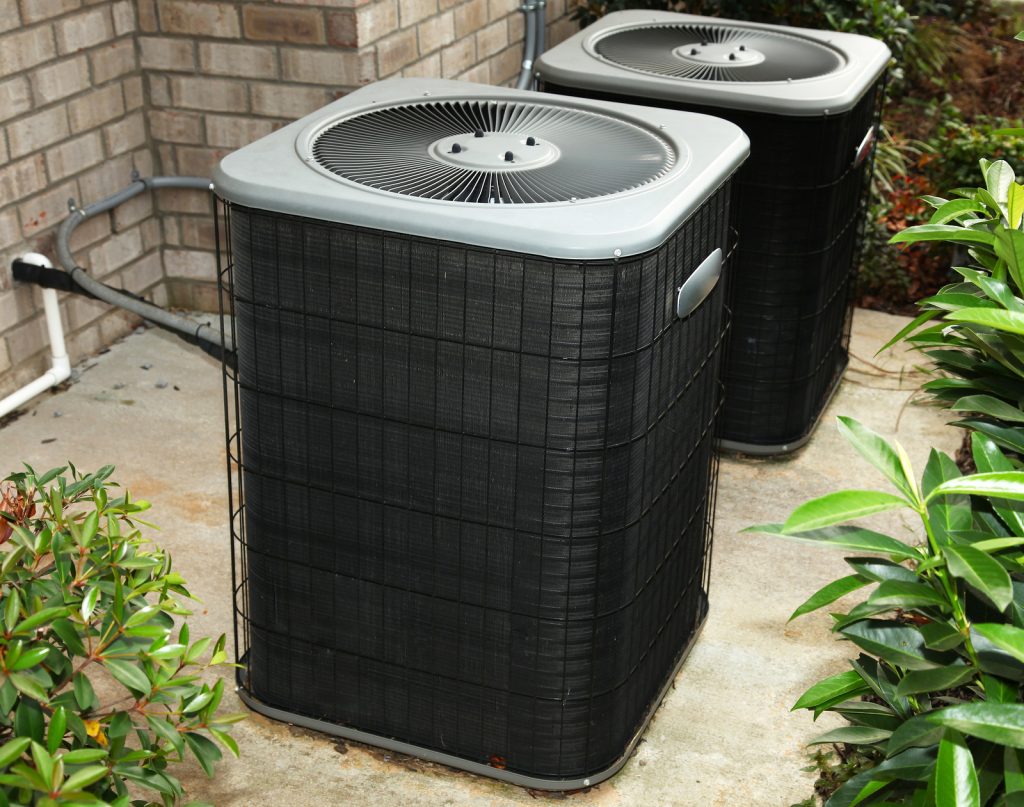


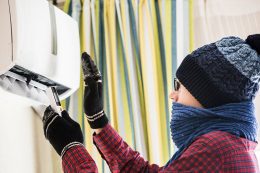
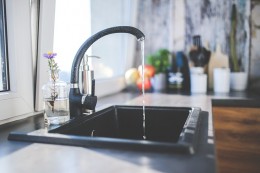
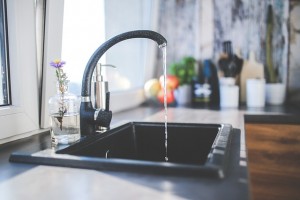

Recent Comments